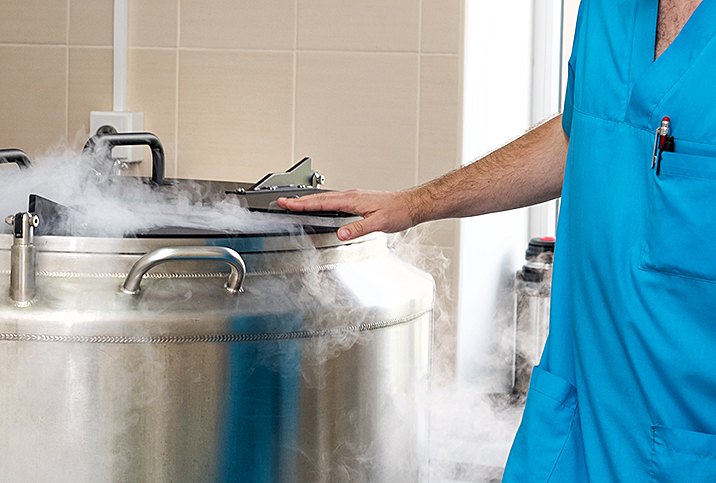7 Important Things You Should Consider Before Freezing Your Eggs

To preserve their reproductive capability, many women opt for harvesting and freezing their ova, or eggs. The process involves inserting a needle through the vaginal wall into the follicles, or sacs, in the ovary where eggs mature. Then, the mature eggs are gently suctioned out and flash-frozen. In the future, they can be fertilized and implanted into the uterus.
Women who are anticipating the end of their reproductive years are the most likely candidates to freeze their eggs. It's a fairly common, relatively safe procedure, although it does require mild anesthesia or sedation.
There are, however, a few essential details for women to consider if they intend to undergo the procedure.
1. Age is a factor (in numerous ways)
The younger a woman is when she freezes her eggs, the better the chances are that the use of those eggs will culminate in a live birth. If the woman is under 35, the odds are good; freezing eggs at age 40 or beyond, however, means the chances of success fall precipitously.
According to some experts, a woman utilizing eggs that were frozen at age 35 has a better chance of live birth than a woman of 40 trying to get pregnant the old-fashioned way.
2. There are no guarantees
The chances of any single frozen egg leading to a live birth are 2 to 12 percent for women younger than 38, according to the American Society for Reproductive Medicine (ASRM). A report published in 2013 indicated that a woman of 30 who freezes two to six of her eggs has a 9 to 24 percent chance of live birth. At age 40, that figure drops to 5 to 13 percent.
Considering the eggs must survive being removed from the follicles, frozen, stored for a length of time, thawed, fertilized and eventually implanted into the ovaries, these are remarkably good levels of success.
3. The process takes time
Freezing your eggs is a commitment to about two weeks of doctor visits, tests and medication. Given the odds noted above, when an egg-harvesting procedure is performed, doctors want to get as many as they can. To this end, the woman will be given synthetic hormones to stimulate the ovaries to produce multiple eggs instead of the usual single egg each month.
Ultrasound tests are used to check the ovaries for eggs, and blood tests are used to monitor estrogen levels and other hormones.
4. Prepare for side effects
Taking the mountain of hormones required to release multiple eggs in one menstrual cycle can result in mood swings and other side effects. Cramping and vaginal bleeding are possible, as well as ongoing feelings of fullness or pressure since the ovaries are enlarged.
Generally, normal activities can be resumed within a week of egg harvesting, although unprotected sex is discouraged to prevent an unplanned pregnancy while the woman is so hyperfertile.
5. It's expensive
According to experts in the field, one egg-freezing cycle can cost $15,000 to $20,000—and insurance is not apt to cover it.
Also, storing the eggs will run you up to $100 a month. And that doesn't even take into account the in vitro fertilization (IVF) procedure itself, which can cost as much as $40,000 to $60,000.
6. You can have plenty of reasons
Women opting for egg-freezing often do so because of health issues, for instance:
-
Upcoming surgical procedures that could damage the ovaries
-
Chronic conditions that damage the ovaries
-
A family history of early menopause
-
Turner syndrome, a condition that can result in premature ovarian failure
-
Finding out they have a genetic mutation such as BCRA, which can lead to breast and ovarian cancer
Additionally, some major corporations are helping couples freeze their eggs when they're young so they can put off having children until later in their careers.
7. Freezing eggs is different from freezing embryos
Freezing eggs means you can try to have them fertilized later with sperm from a donor of your choice. Freezing already fertilized embryos, however, means you have no choice but to use the genetic material from the particular sperm donor you originally chose.
Freezing embryos might be a fine choice if you're in a committed relationship, but freezing eggs allows you to keep your options open and invite your own sperm donor at a later date to be the father.
Fertility medicine has made tremendous strides in recent years. However, that doesn't mean the process of freezing your eggs is without some barriers: age, side effects, health issues and the financial outlay.
The better informed you are prior to committing to the procedure, the fewer surprises you'll encounter along the way.


















